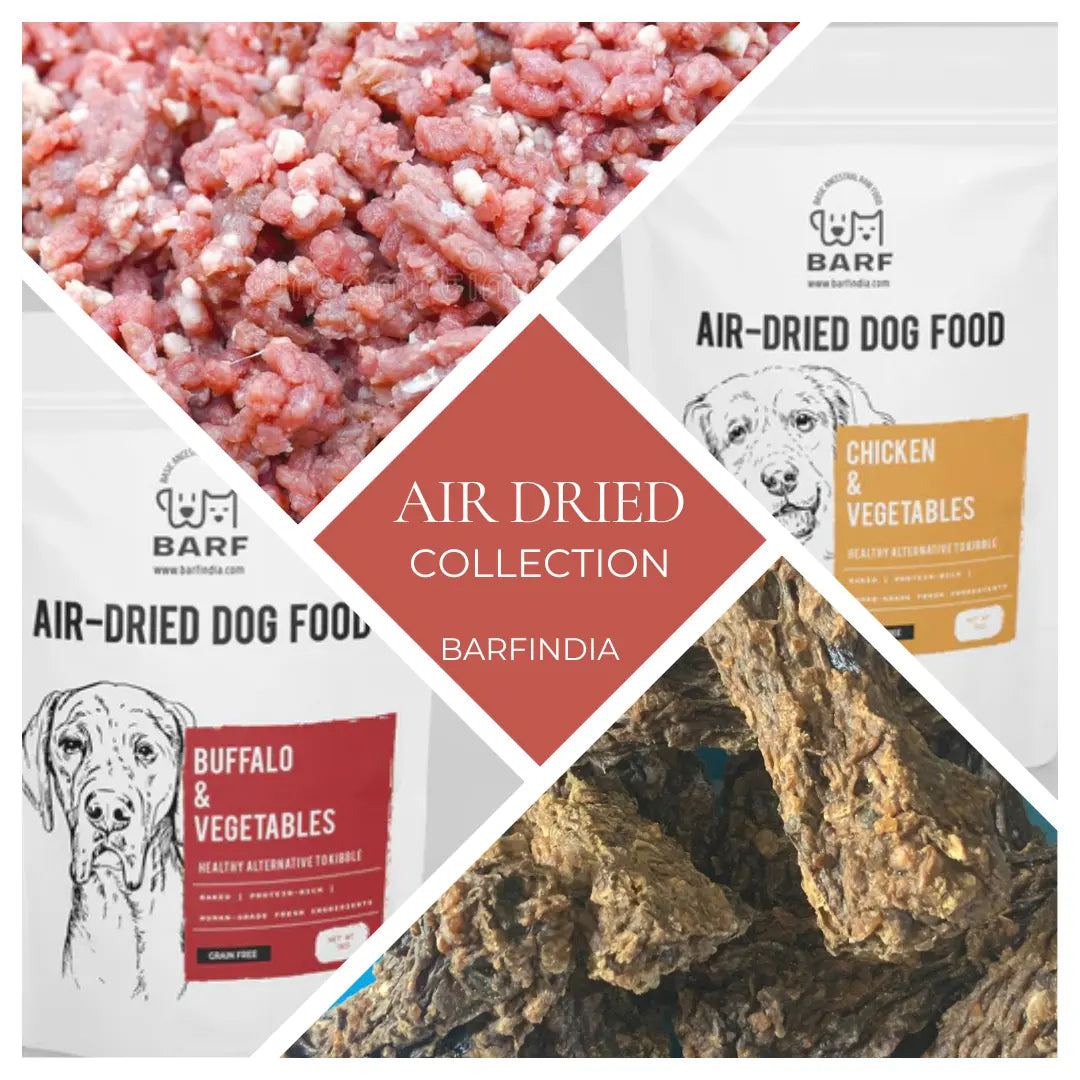
Allergies in dogs
B.A.R.F. India AdministratorAllergies in Dogs: What They Are and Why They Matter
Pet allergies are more common than many owners realize. In humans, reactions often stop at runny noses and watery eyes, but allergies in dogs can involve relentless itching, ear infections, hair loss, digestive upsets, and even respiratory distress. Knowing how to spot trouble early—and why it happens—lets you protect your dog before discomfort spirals into chronic illness.
Allergies in Dogs: Recognising the Warning Signs
Itchy skin, hot spots, ear infections, watery eyes, and runny noses are the most visible red flags. Less obvious signs include frequent paw-licking, tummy troubles, and general lethargy. Any persistent redness, swelling, or irritation deserves a closer look from your vet.
Allergies in Dogs: Common Triggers Inside and Out
-
Environmental: Grass, pollen, mould, dust, and dust mites
-
Parasites: Flea bites often spark severe skin reactions
-
Household chemicals: Cleaning agents, synthetic fragrances
-
Food: Certain proteins, grains, or additives hidden in treats
Left unchecked, these irritants keep your dog’s immune system on high alert, leading to the bigger culprit behind most chronic disease: inflammation.
Allergies in Dogs: The Inflammation Connection
Only about 10 % of dogs have a true, clinical allergy, yet far more show allergy-like symptoms. Why? Chronic inflammation. When the body stays in “fight” mode, normal processes—detoxification, hormone balance, nutrient absorption—slow down or stall. Eventually even minor allergens provoke major reactions.
Allergies in Dogs: Natural Steps to Relief
-
Reduce inflammation first. Switch to a fresh or raw, species-appropriate diet rich in quality proteins and healthy fats. Cutting out processed kibble lowers digestive stress.
-
Use elimination trials. Rotate single proteins for several weeks each to uncover true food triggers. Check treat ingredients, too.
-
Remove confirmed allergens. Once identified, keep them out—whether that’s chicken, wheat, or a scented carpet cleaner.
-
Support healing. Add anti-inflammatory foods (omega-3 fish oil, turmeric) and maintain flea prevention to stop flare-ups before they start.
-
Consult your vet. Severe cases may need short-term meds, but long-term success rests on diet, environment, and consistent monitoring.
Key Takeaway
Allergies in dogs don’t have to dictate your pet’s quality of life. Tackle inflammation, isolate the real trigger, and remove it—and watch your dog return to the scratch-free, tail-wagging friend you love.



